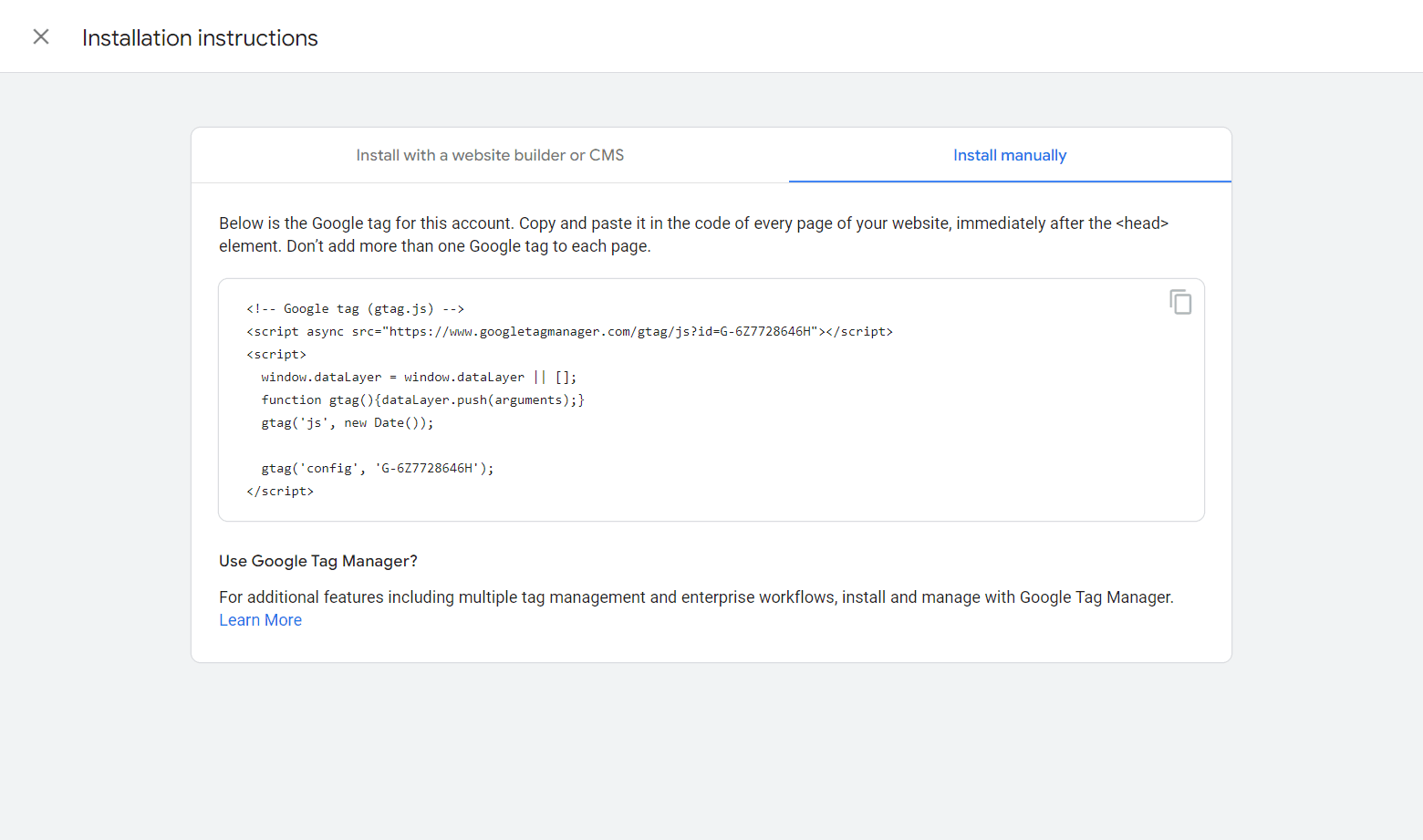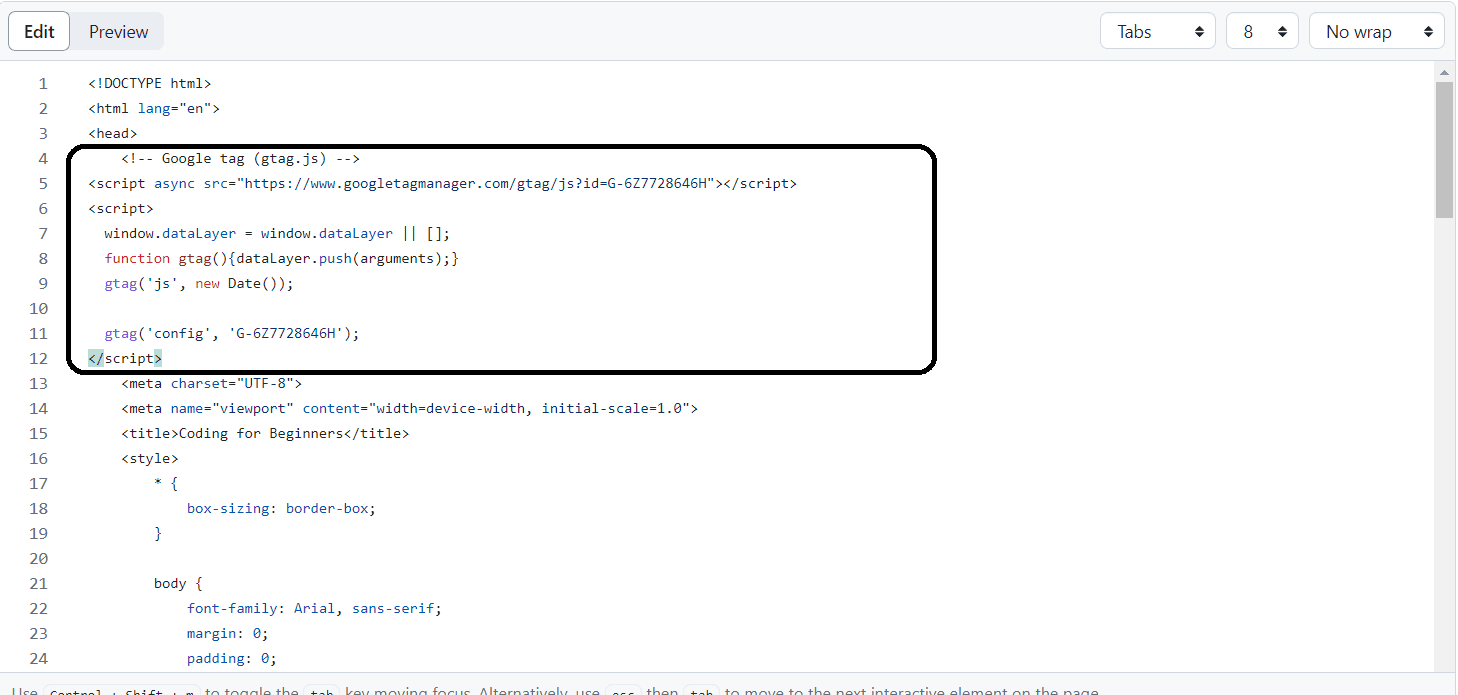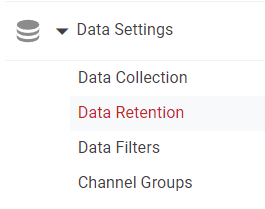
How to Install the Google Analytics Tracking Code
This guide offers a succinct walkthrough on embedding the Google Analytics Tracking Code into your website. By following these steps, users can seamlessly integrate Google's powerful analytics tool, enabling a deep dive into website traffic and user behavior insights.
1
Access Your Google Analytics Account
Log in to your Google Analytics account. Navigate to the appropriate property (the website you wish to track).
2
Locate Your Tracking Code
Click on "Admin" (usually found at the bottom left corner represented by a gear icon). Go to Data Stream and Click on the website you desired This will bring up a page displaying the Global Site Tag (Gtag.js), which is your Google Analytics tracking code
3
Copy the Tracking Code

Highlight and copy the entire tracking code. It should start and end with the script tag.
4
Insert the Code into Your Website

For most websites, this code should be placed in the <head> section of every page. If you’re using a CMS or a platform like WordPress, Joomla, or Shopify: Navigate to the area where you can edit your site's header. This might be in settings, theme options, or a specific area to insert header scripts. Paste the copied tracking code into the provided space.
5
Verify Installation
After embedding the code, visit your website to trigger some data. Return to your Google Analytics account and navigate to the "Real-time" report section to see if any active users (like yourself) are currently on the site. If you see data, it indicates the tracking code has been installed successfully.
6
Monitor Regularly
Over the next few days, check your Google Analytics reports to ensure data is consistently flowing in. It's essential to ensure the tracking code remains intact, especially if you make updates or changes to your website.
We've now demystified the process of integrating Google Analytics into your website. Harnessing these insights will undoubtedly drive informed decisions, optimizing both user experience and website performance. Keep this guide handy for any future reference and remember, the digital realm is vast, but with tools like Google Analytics, navigating it becomes a breeze."








